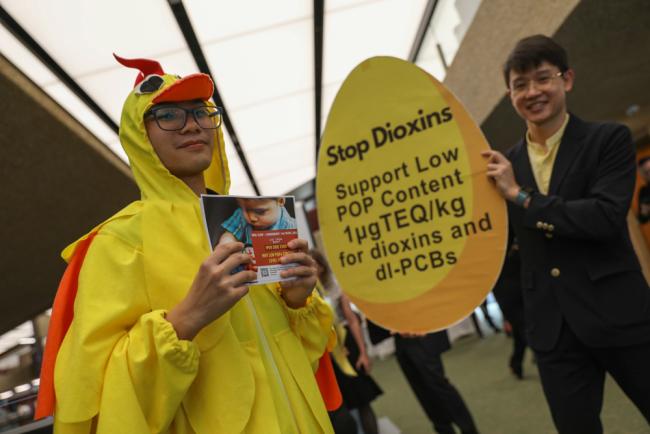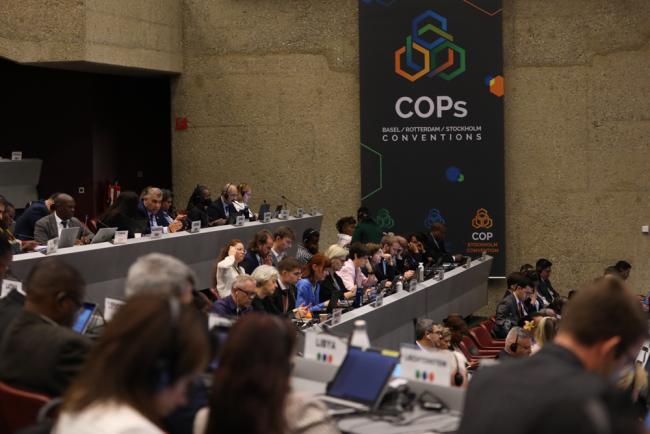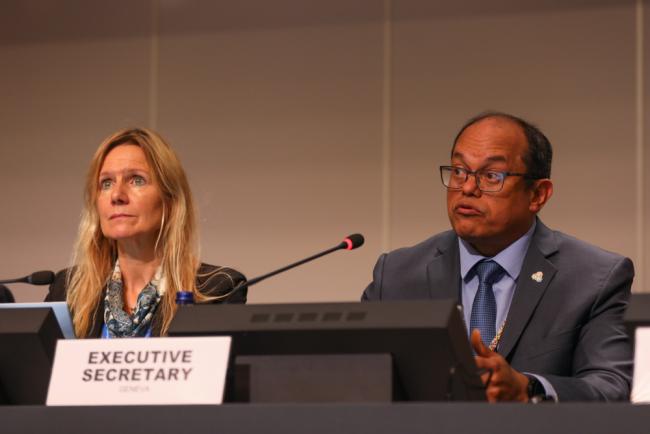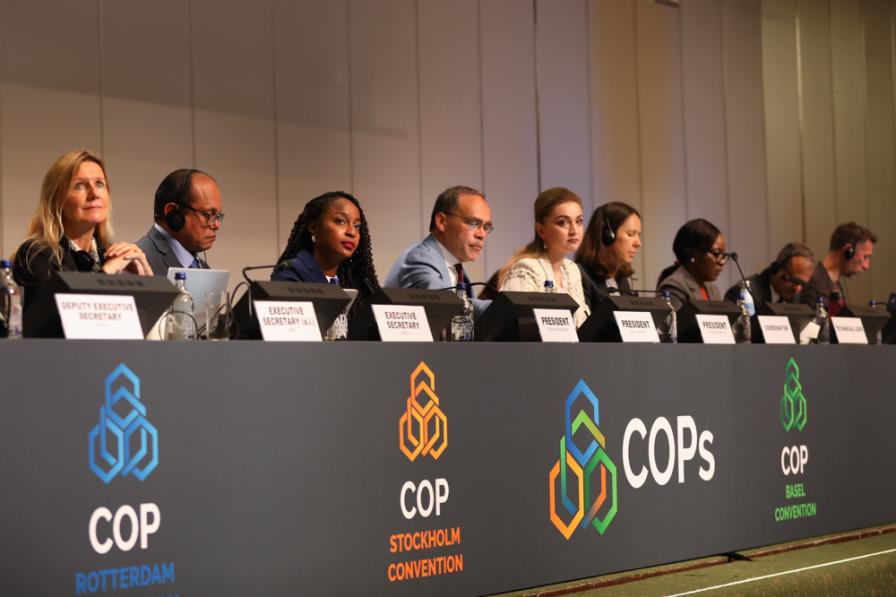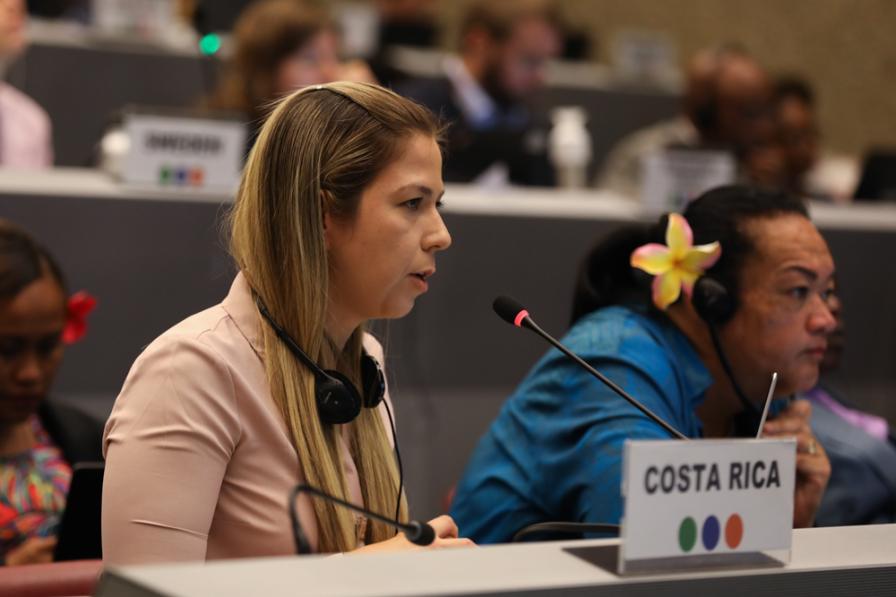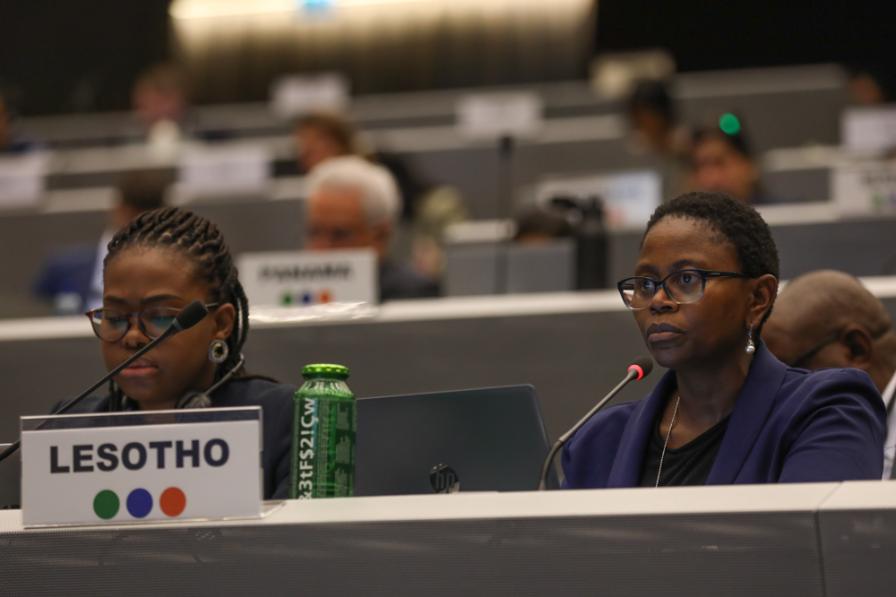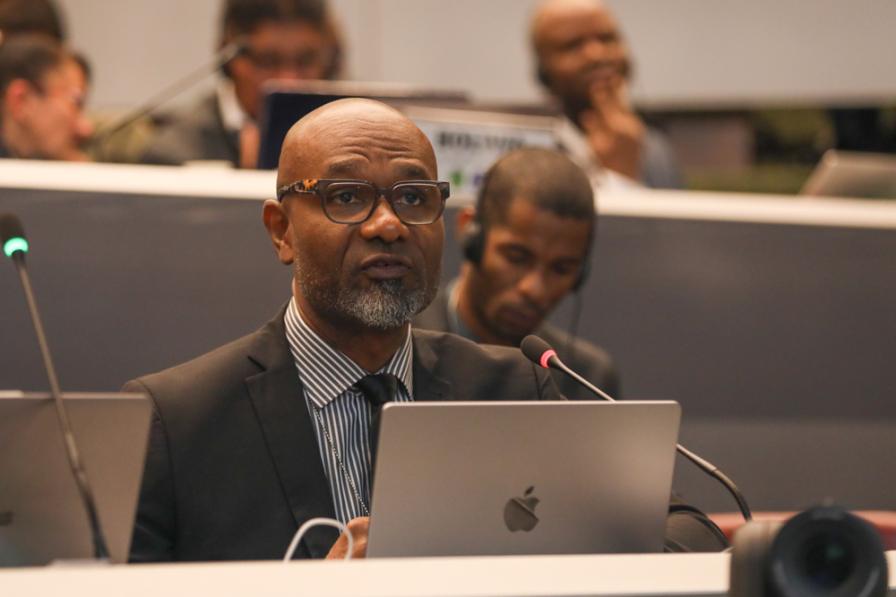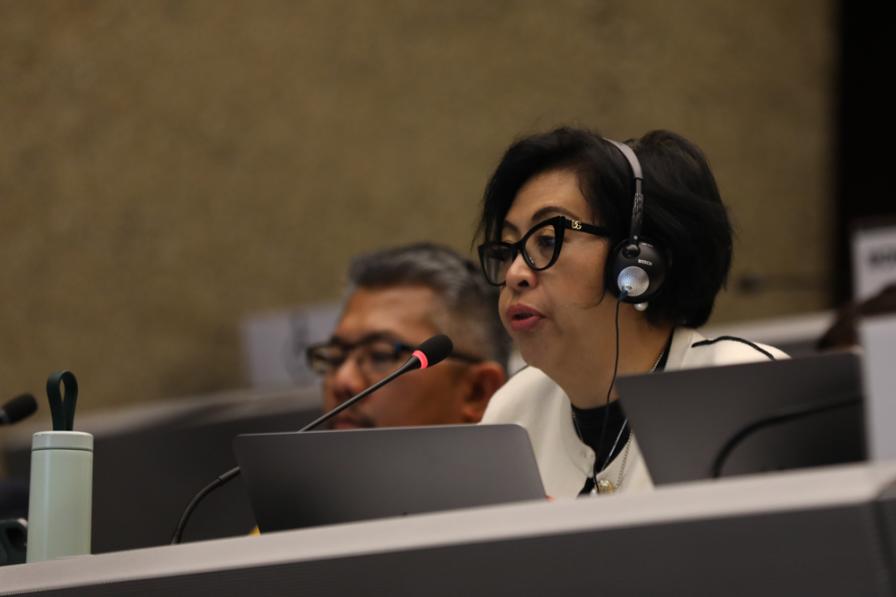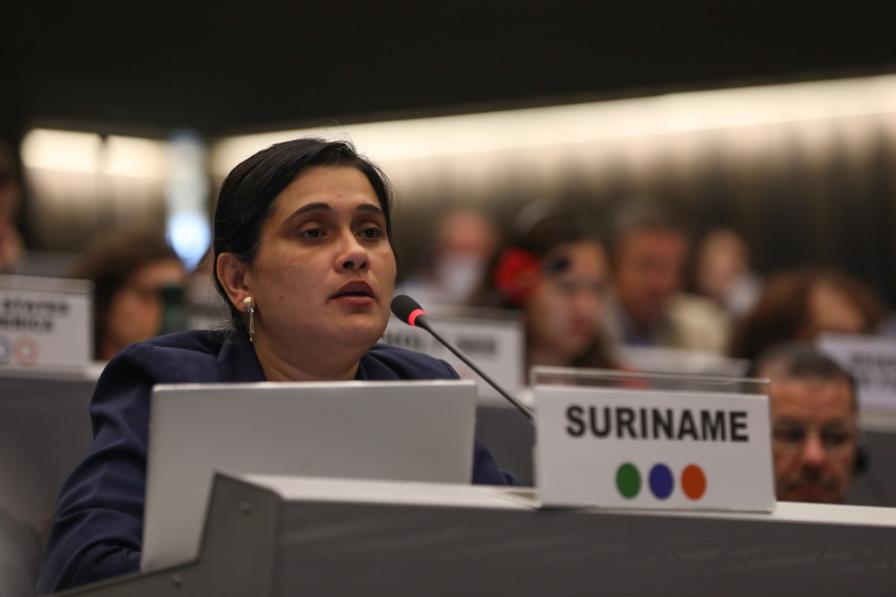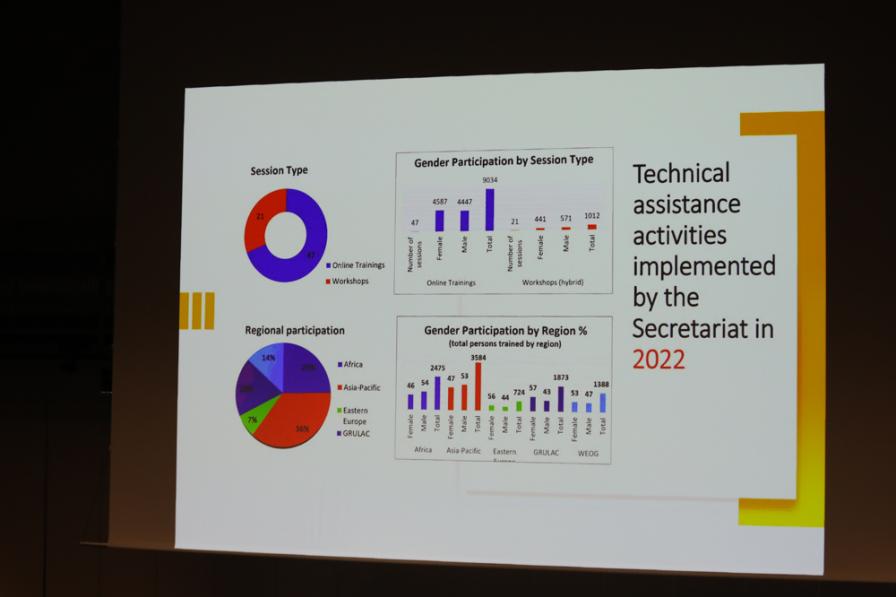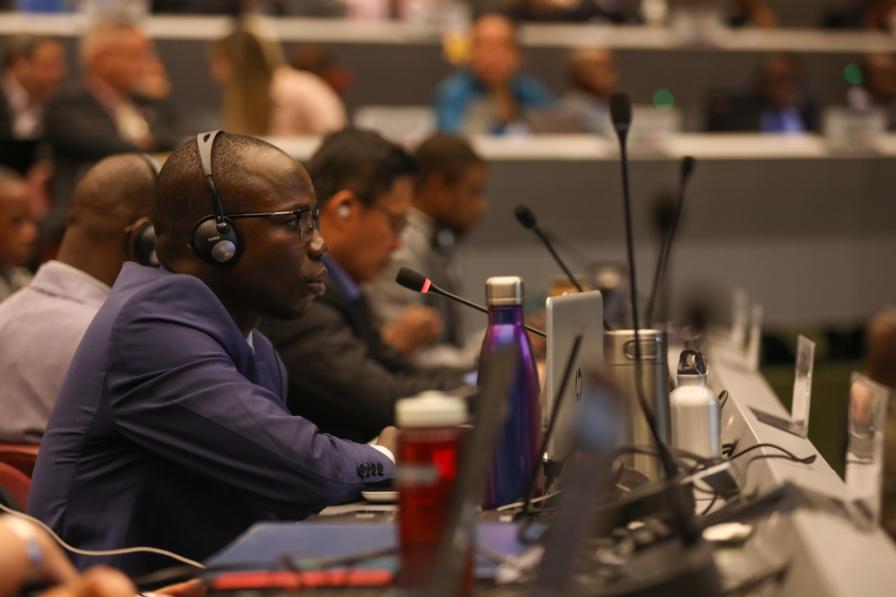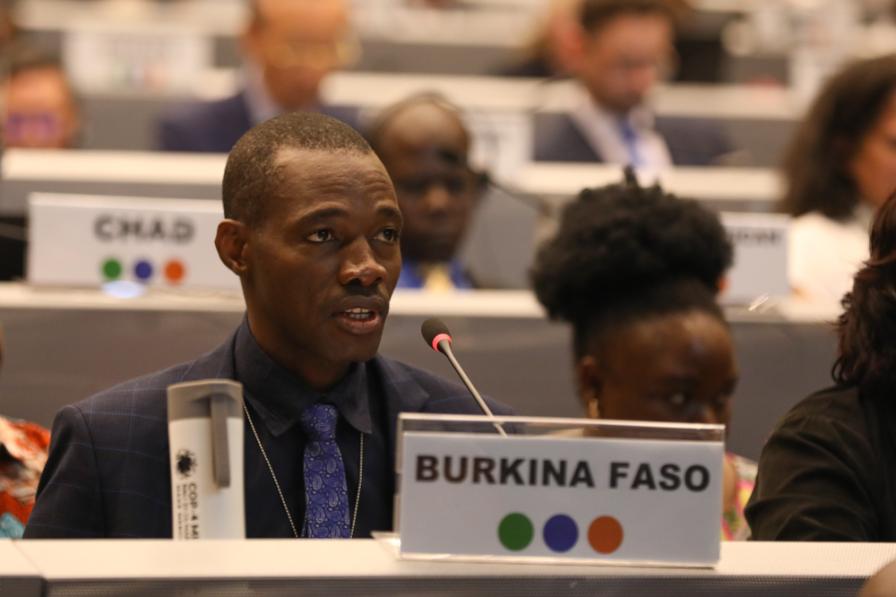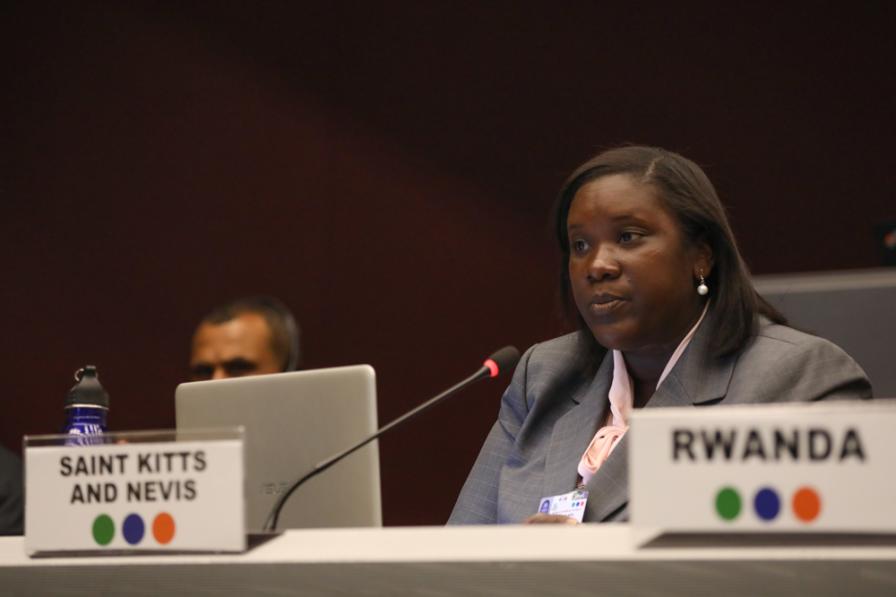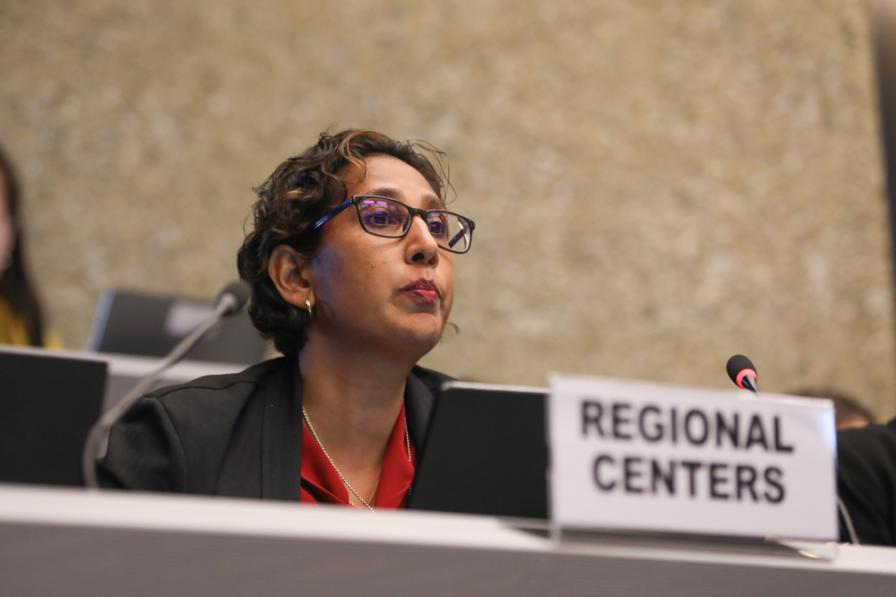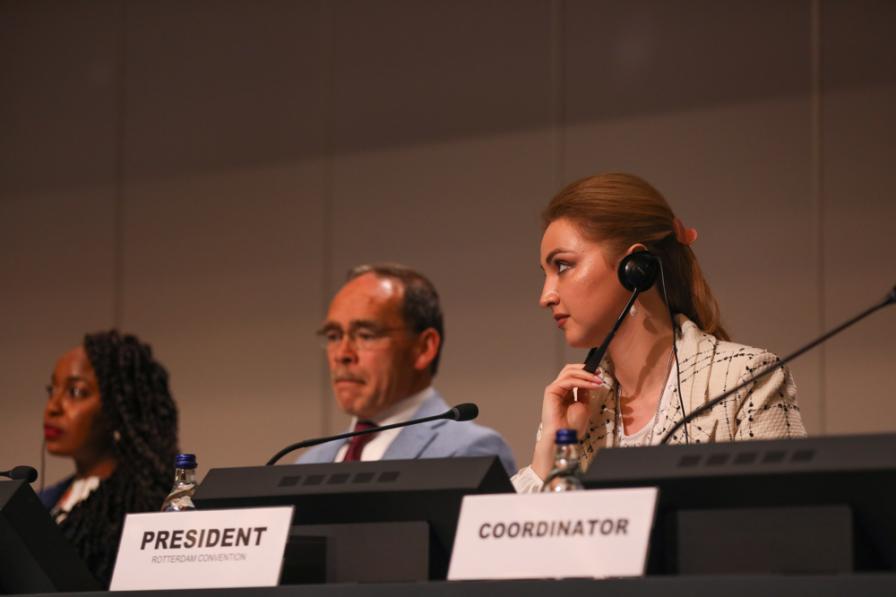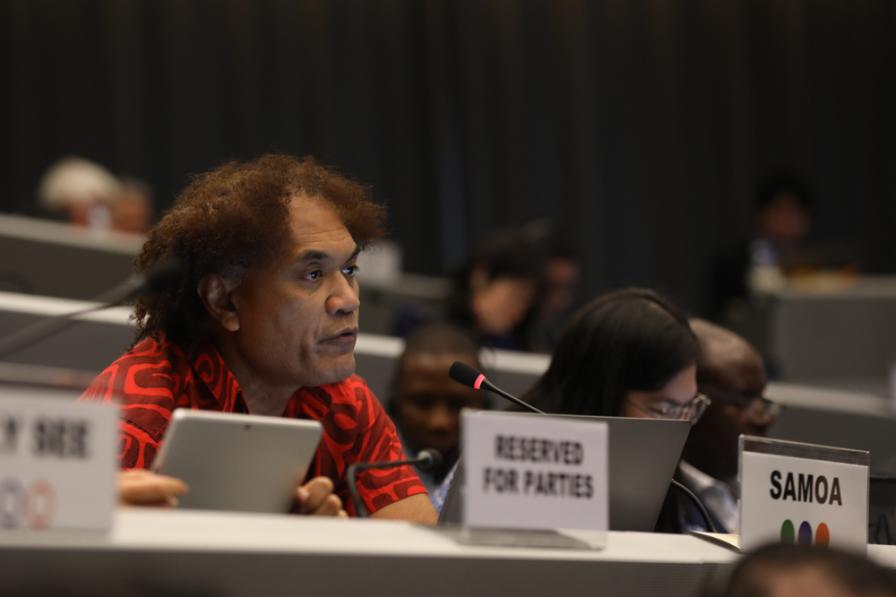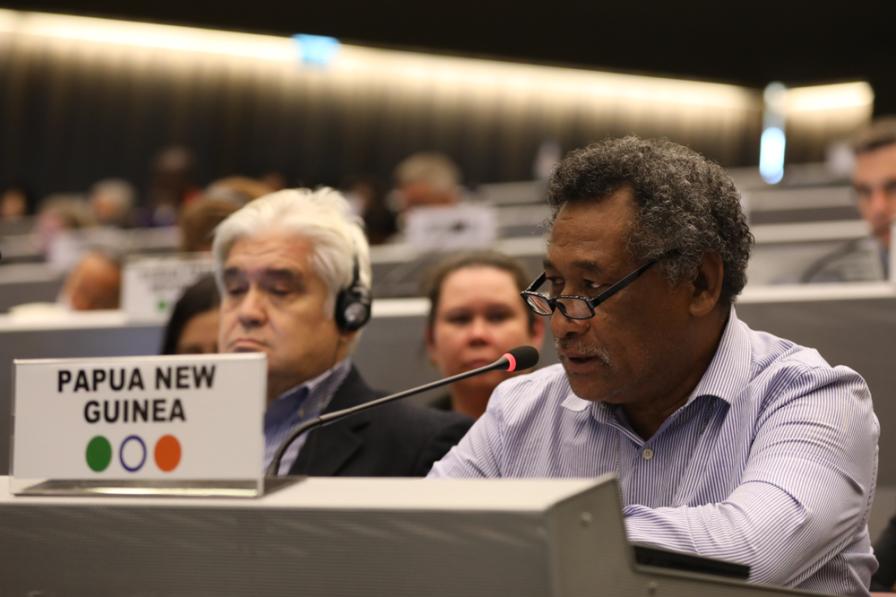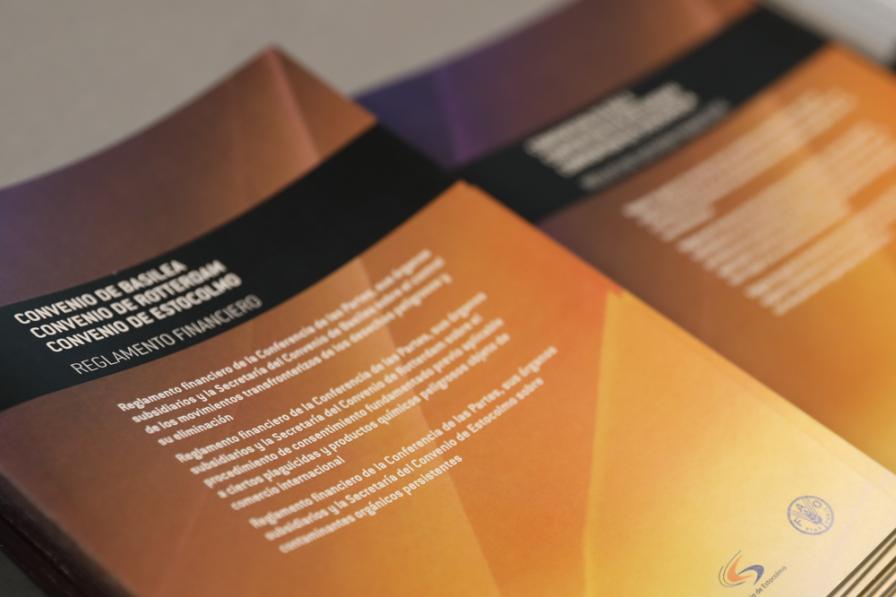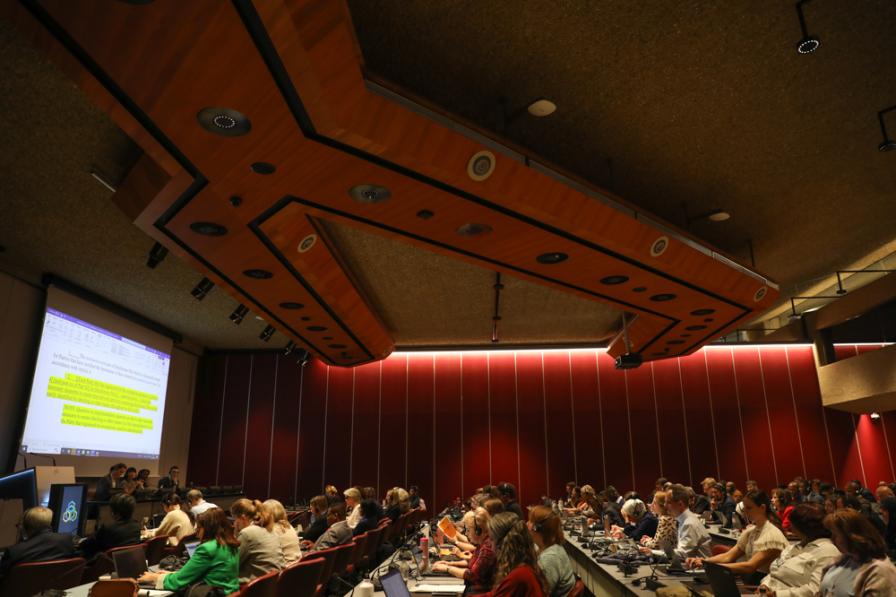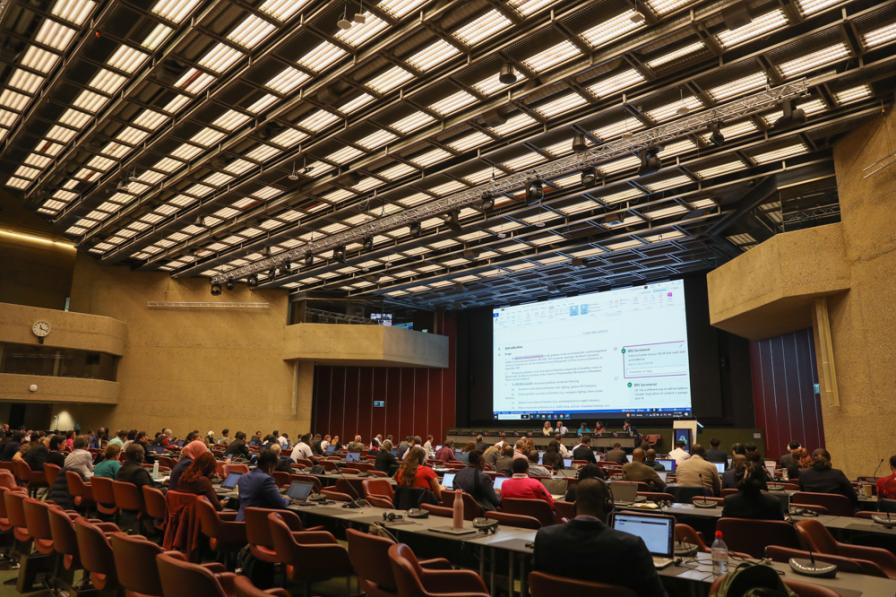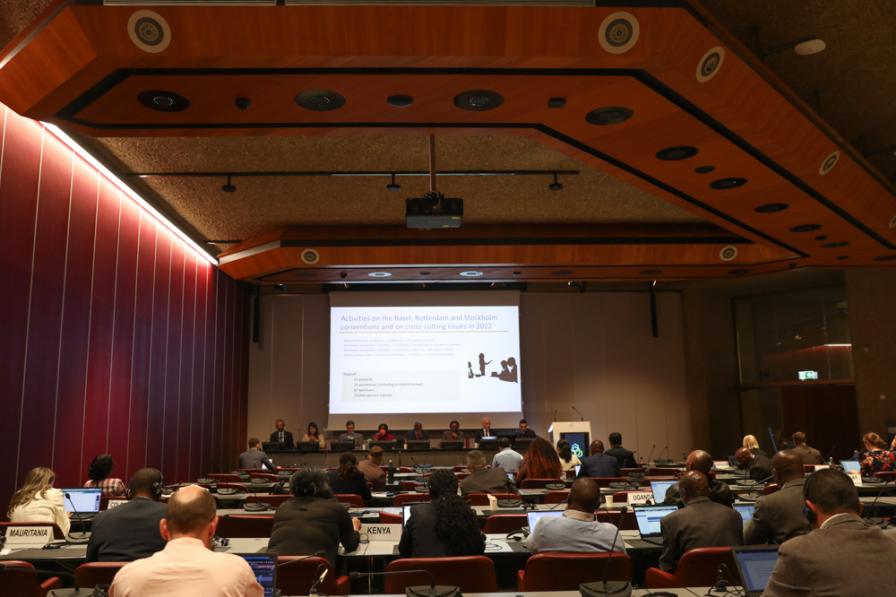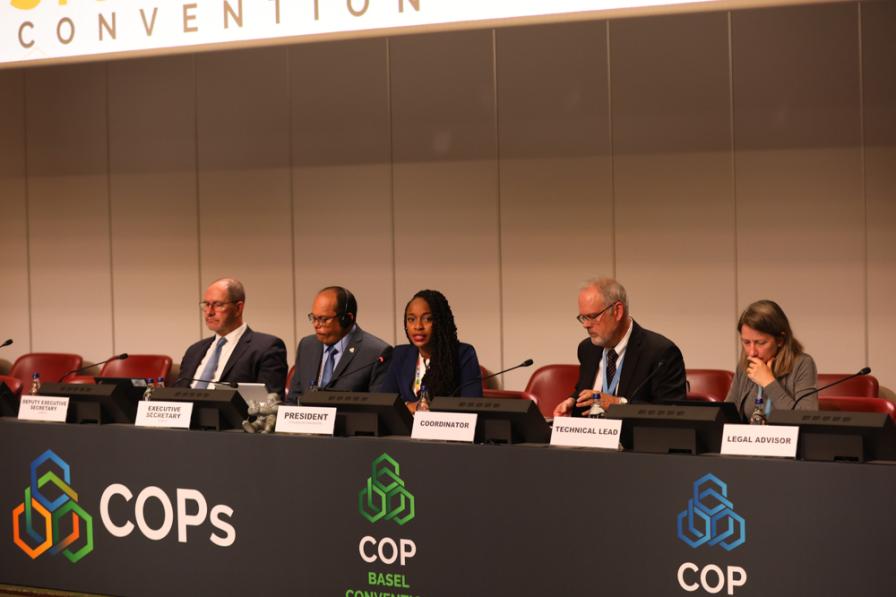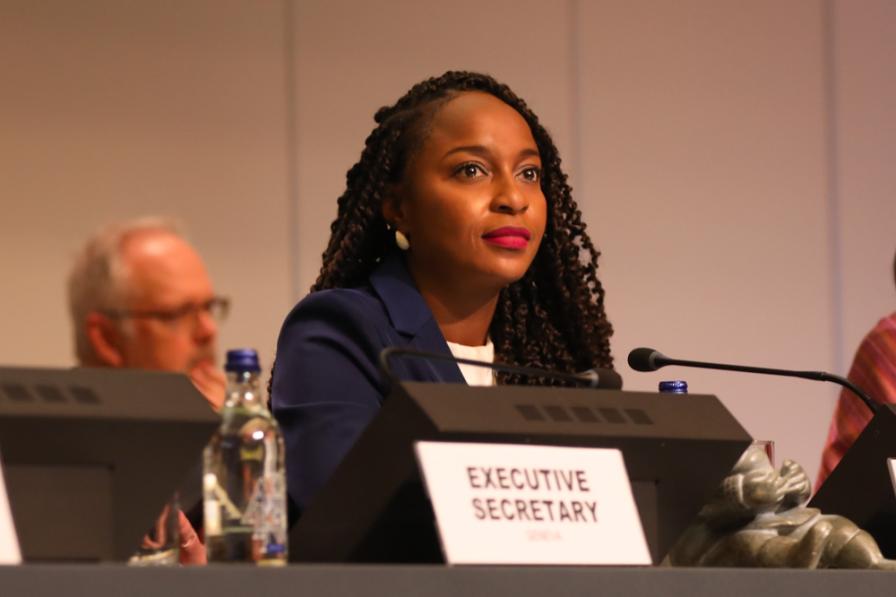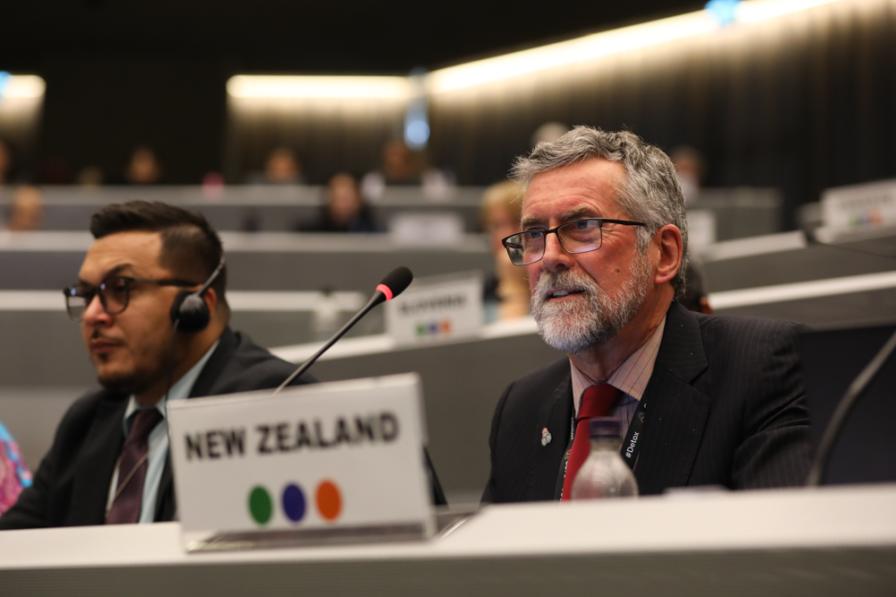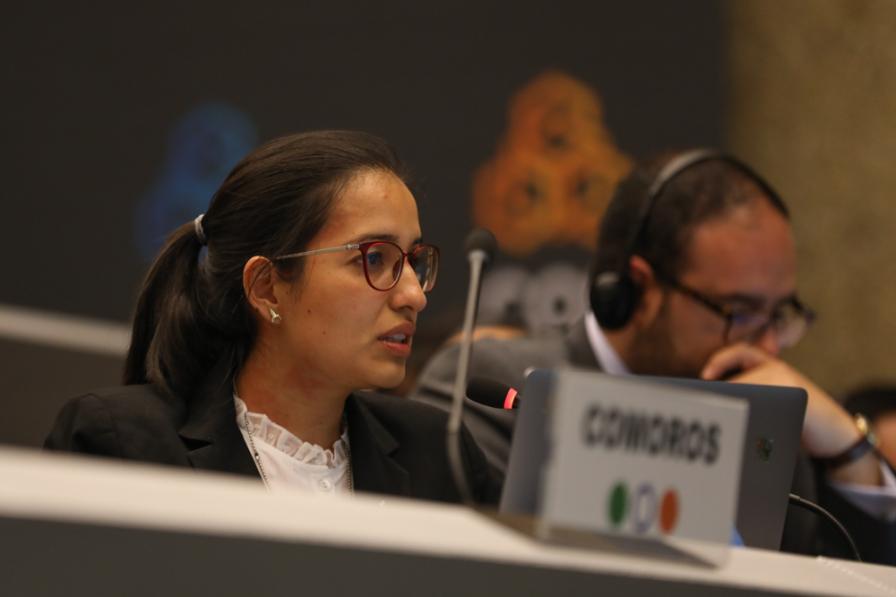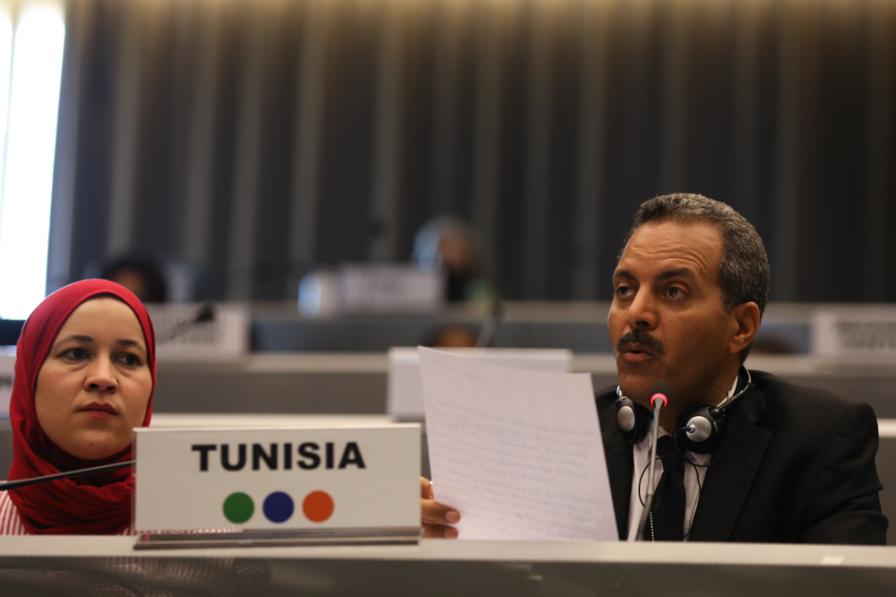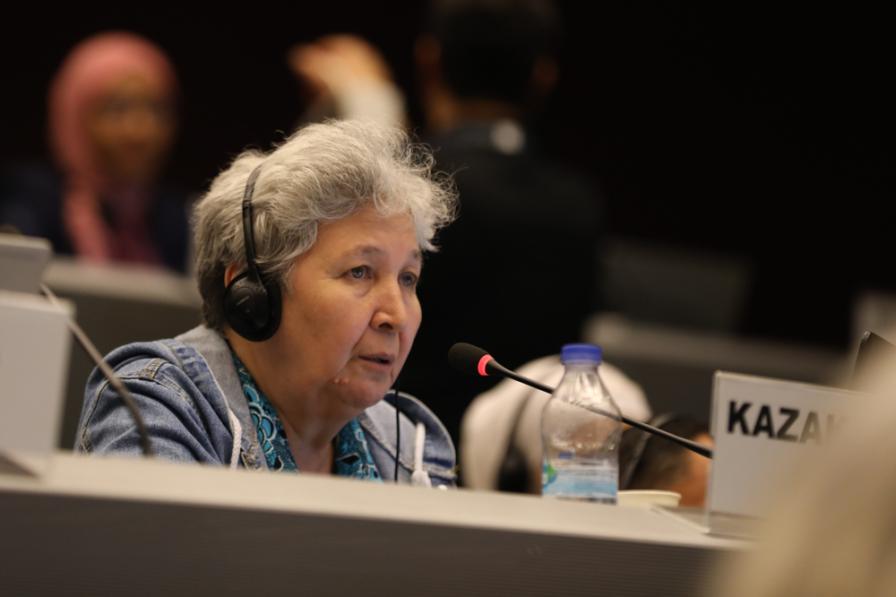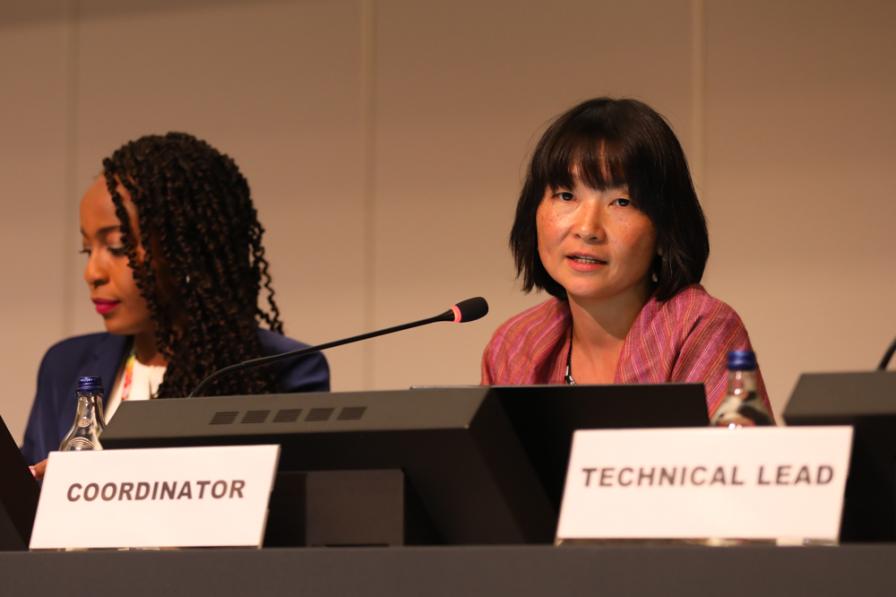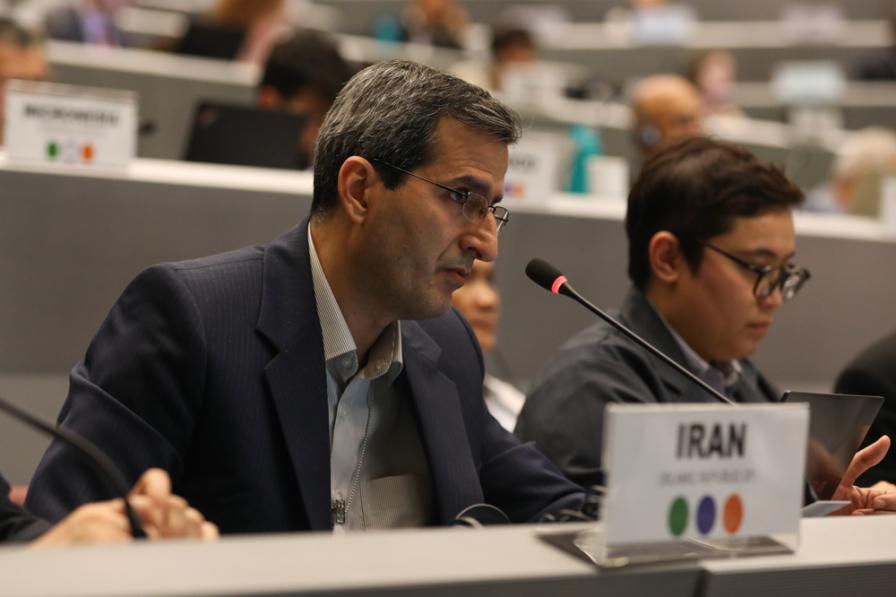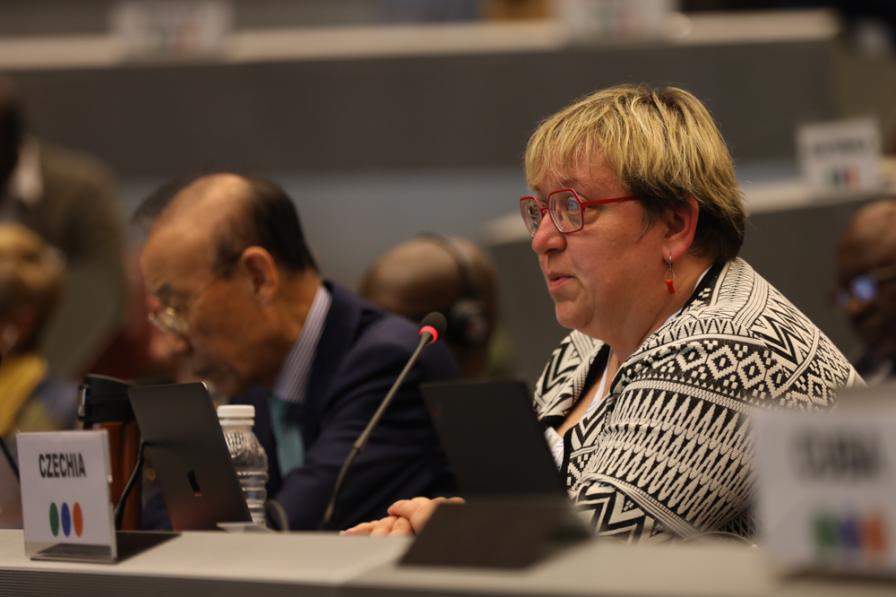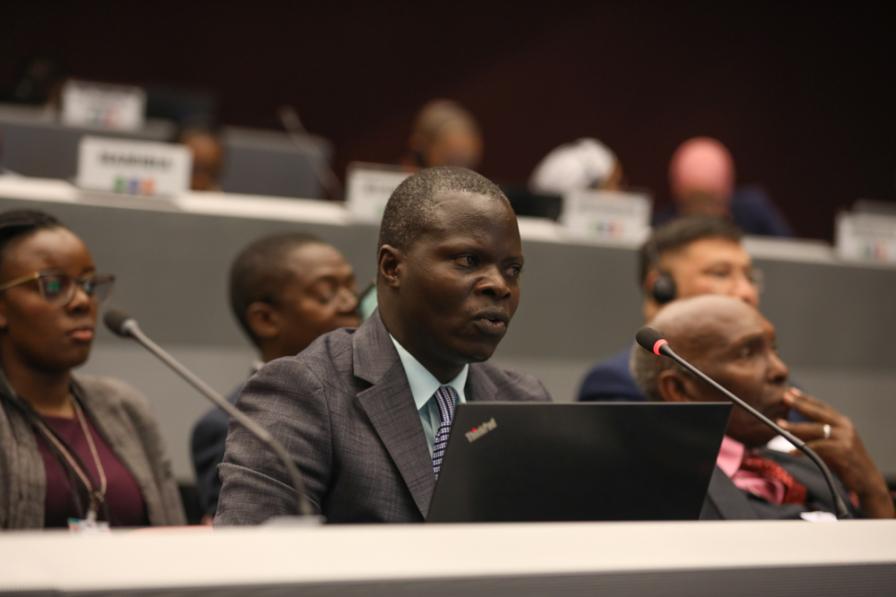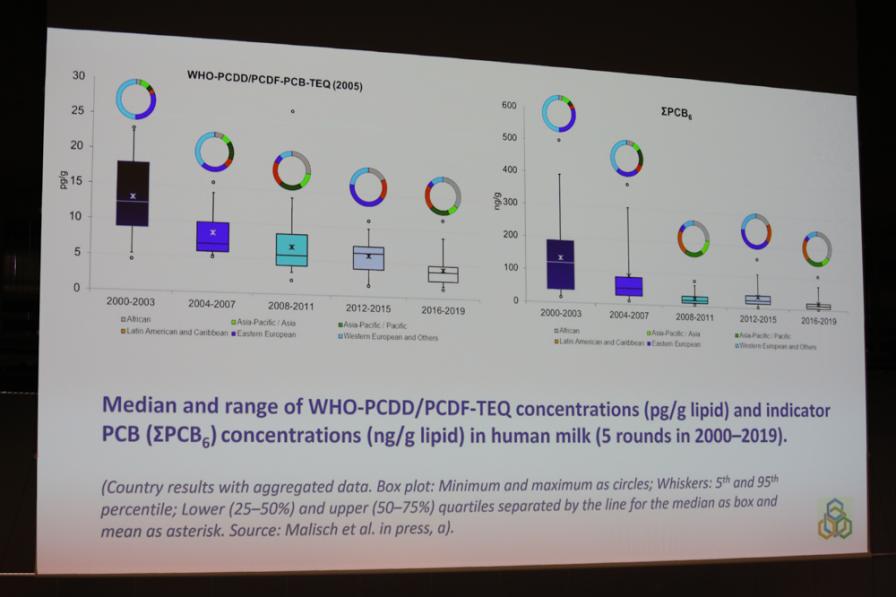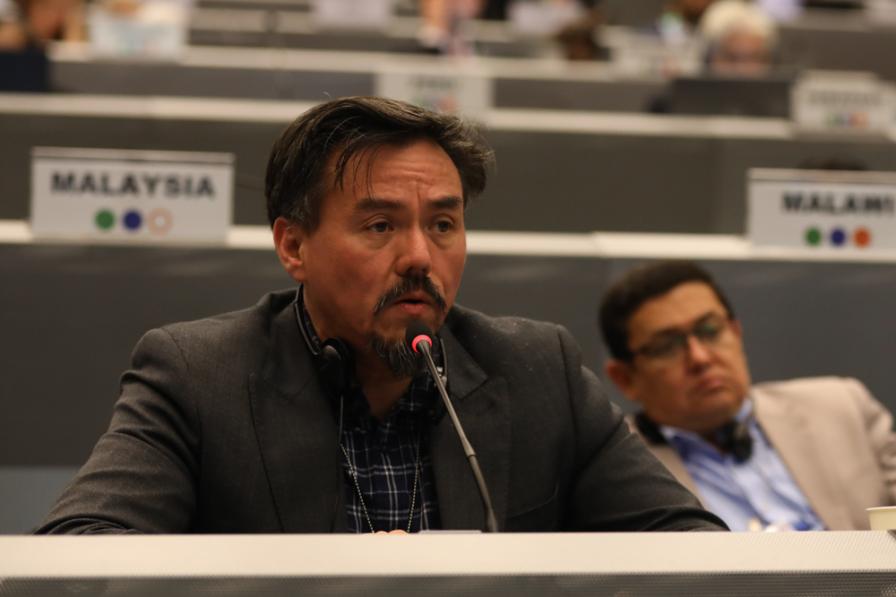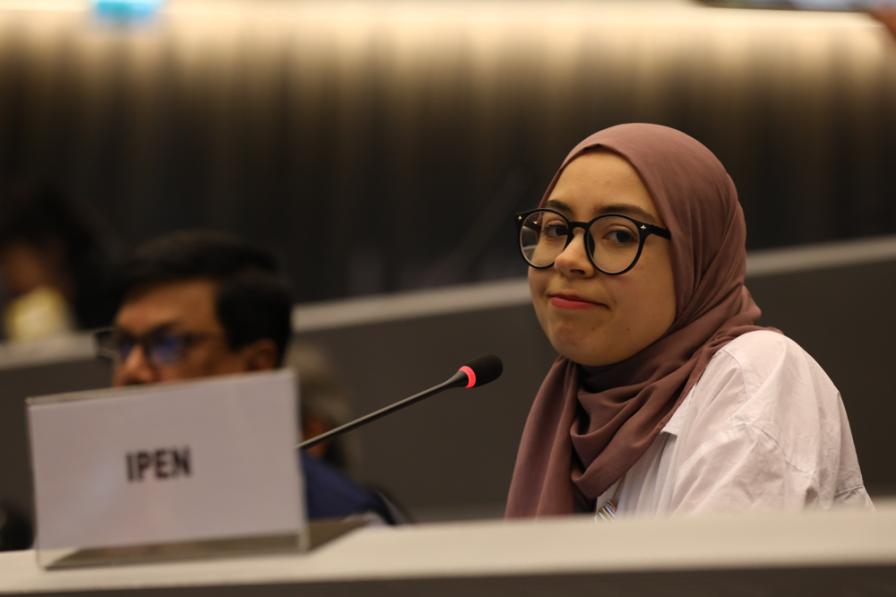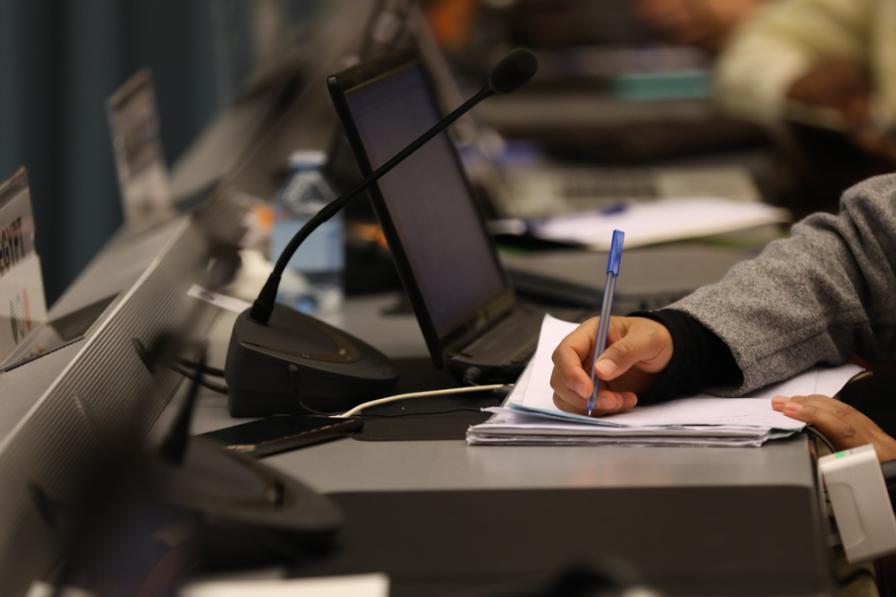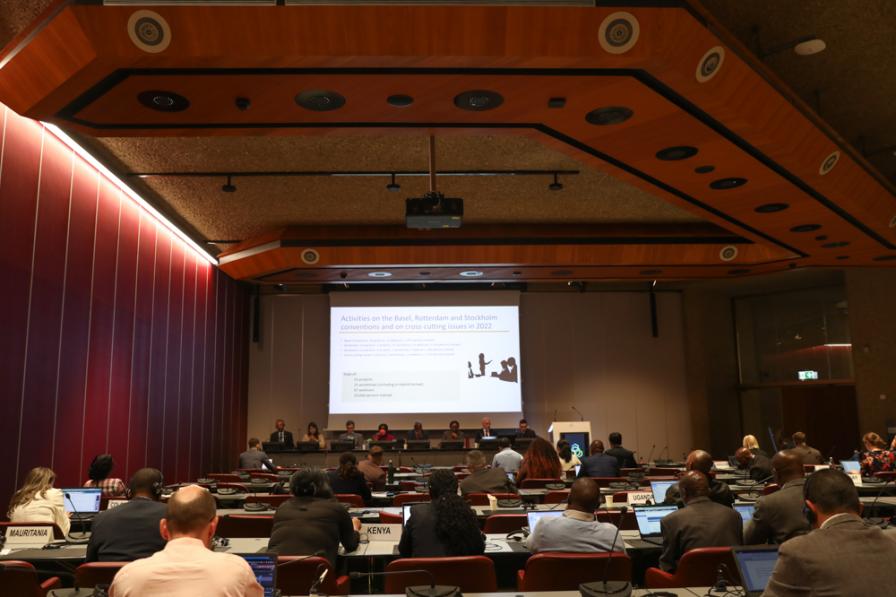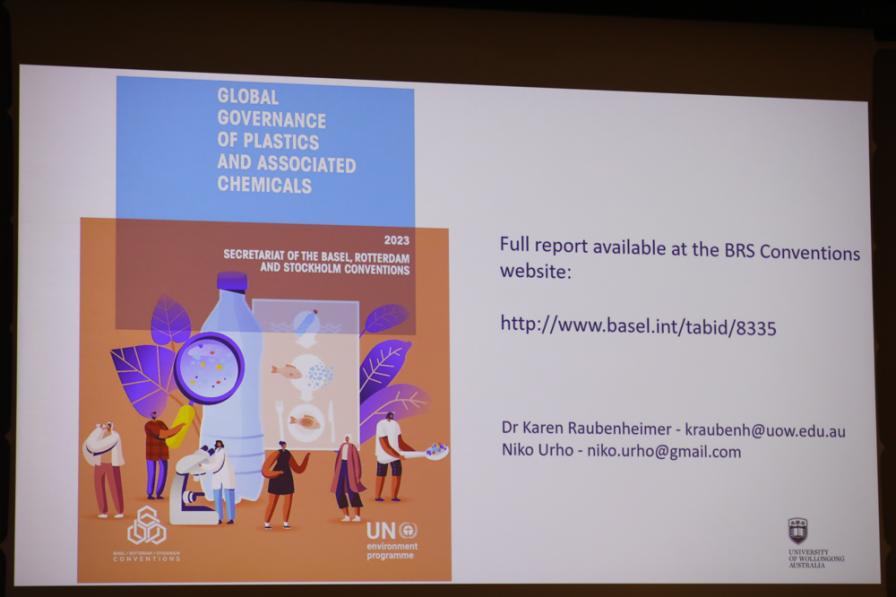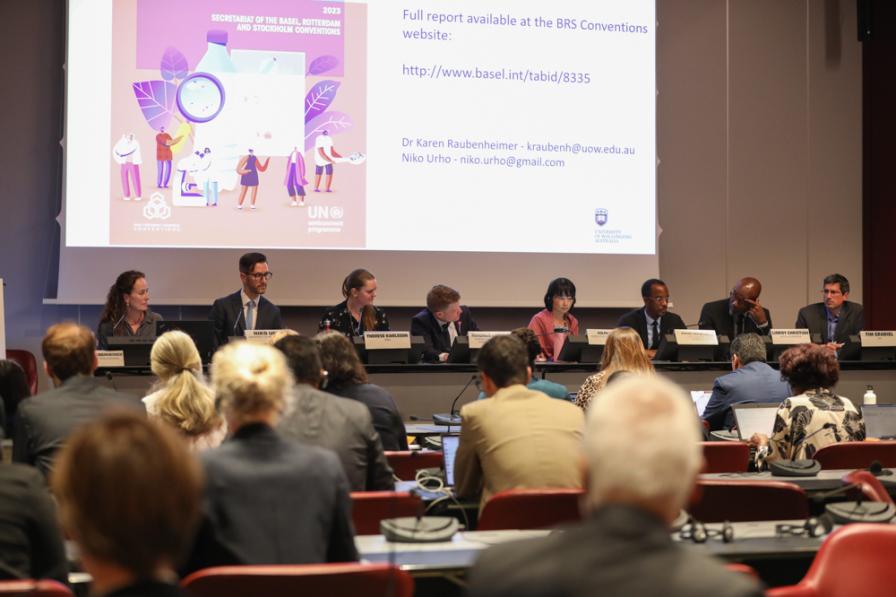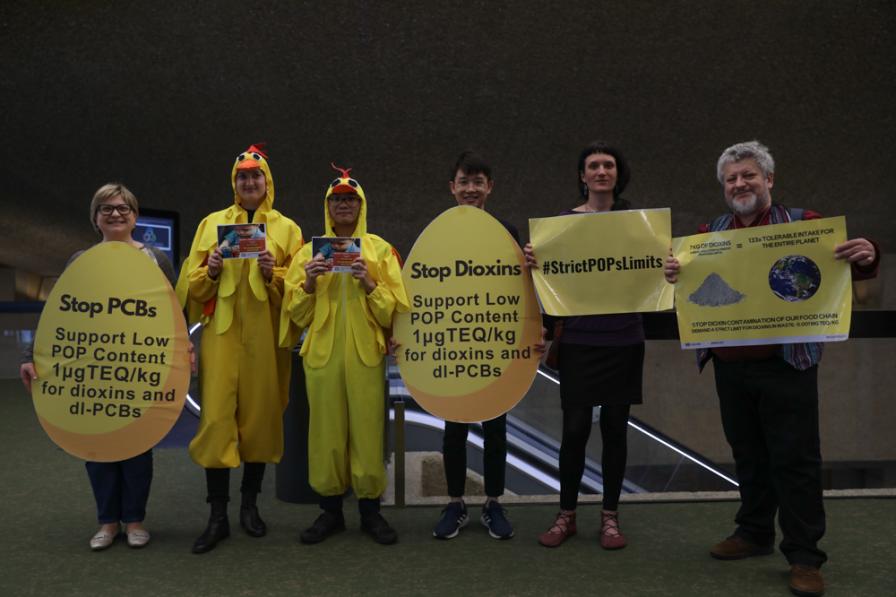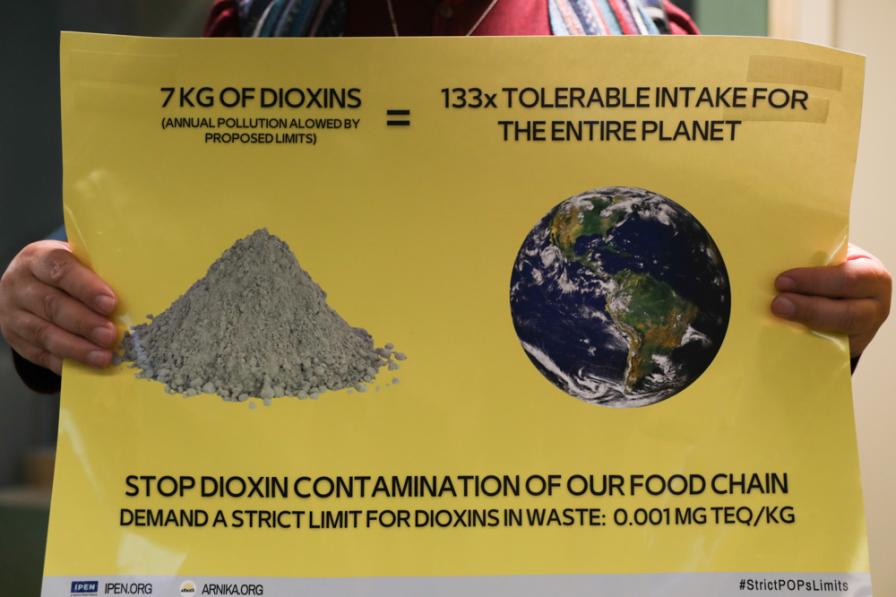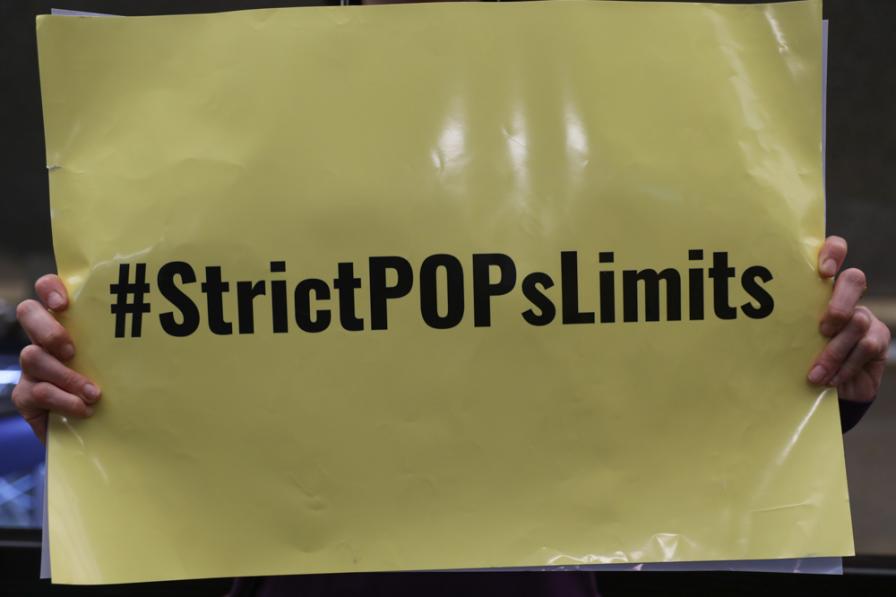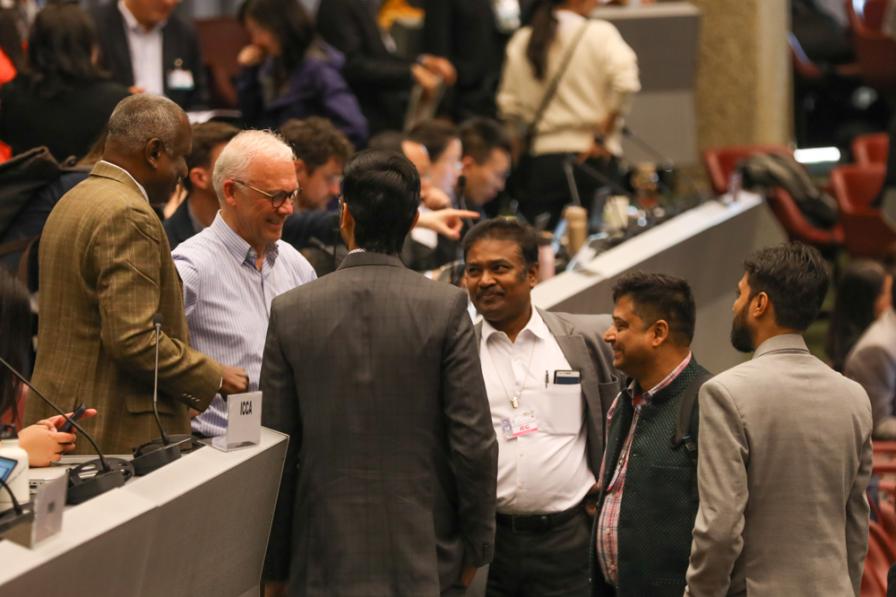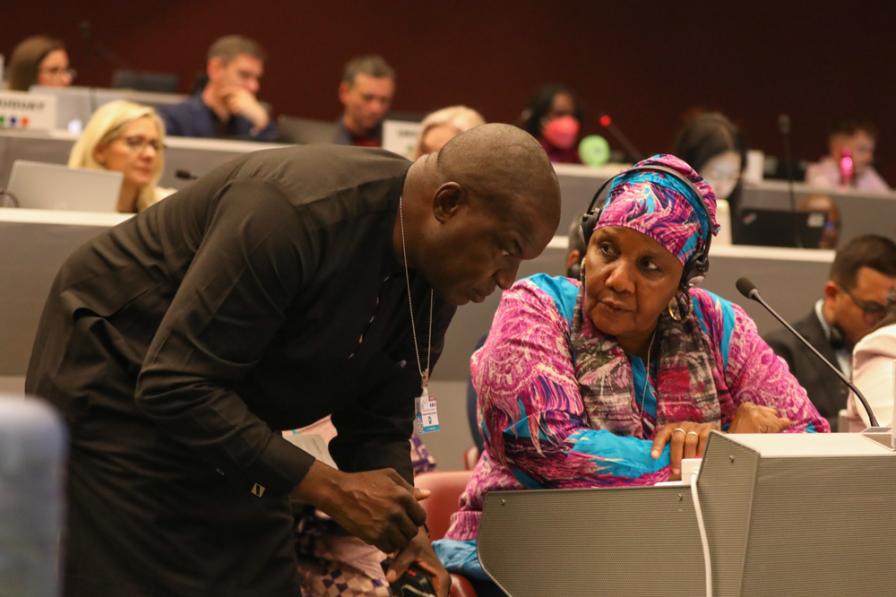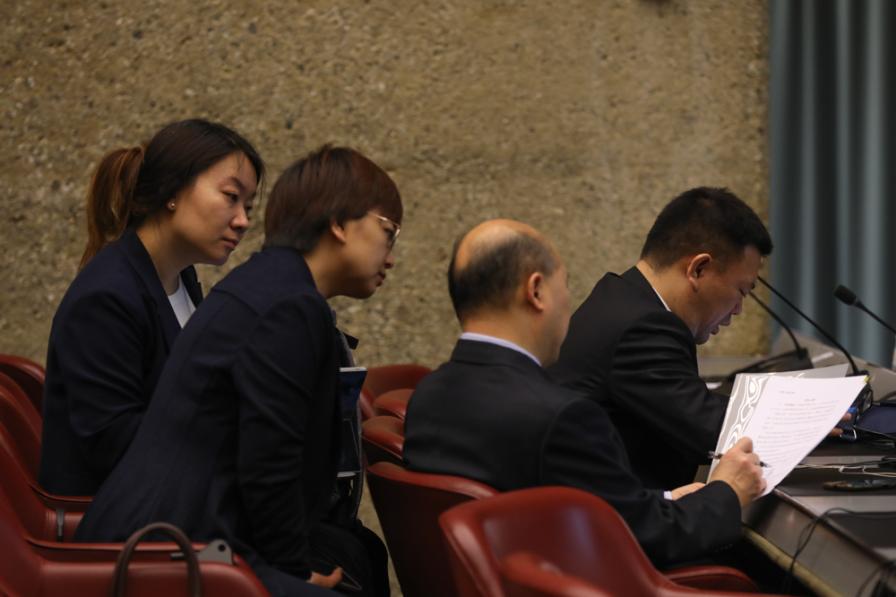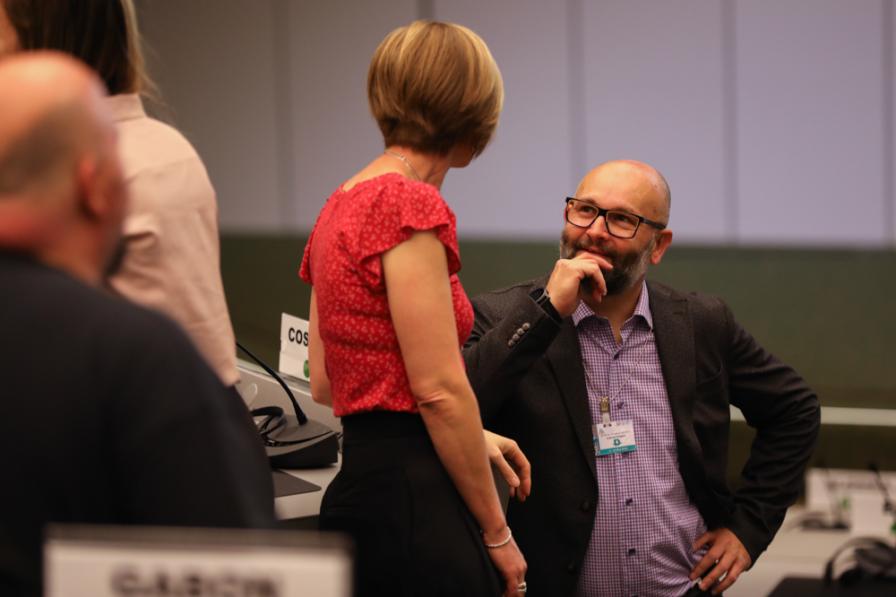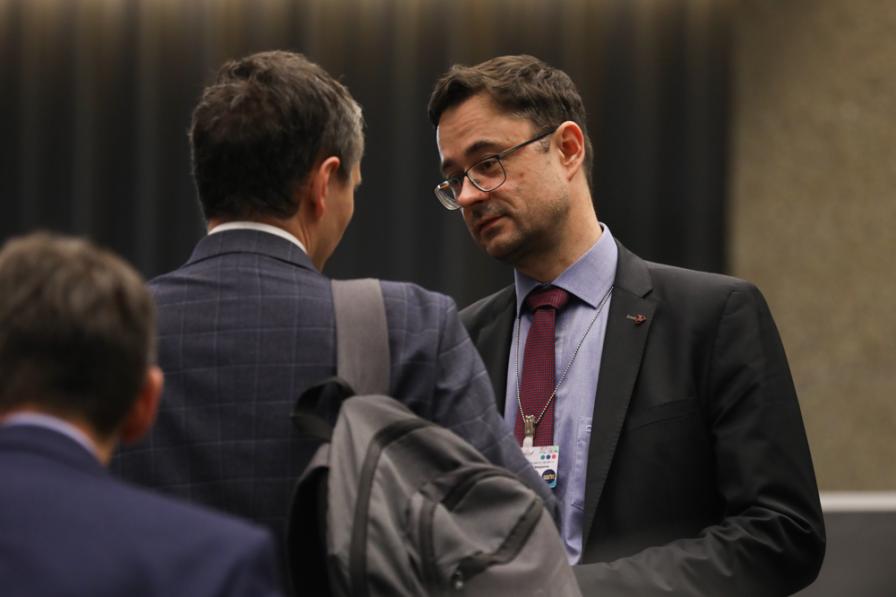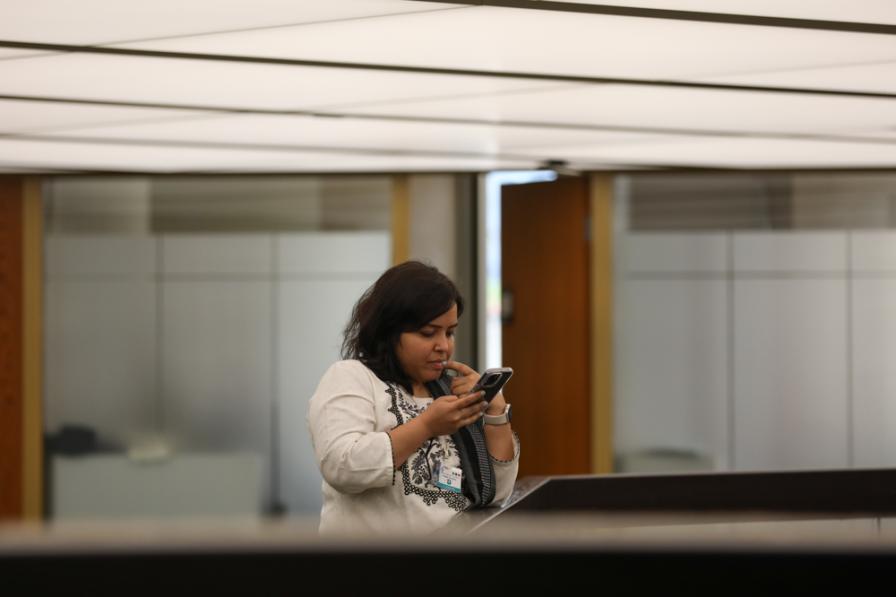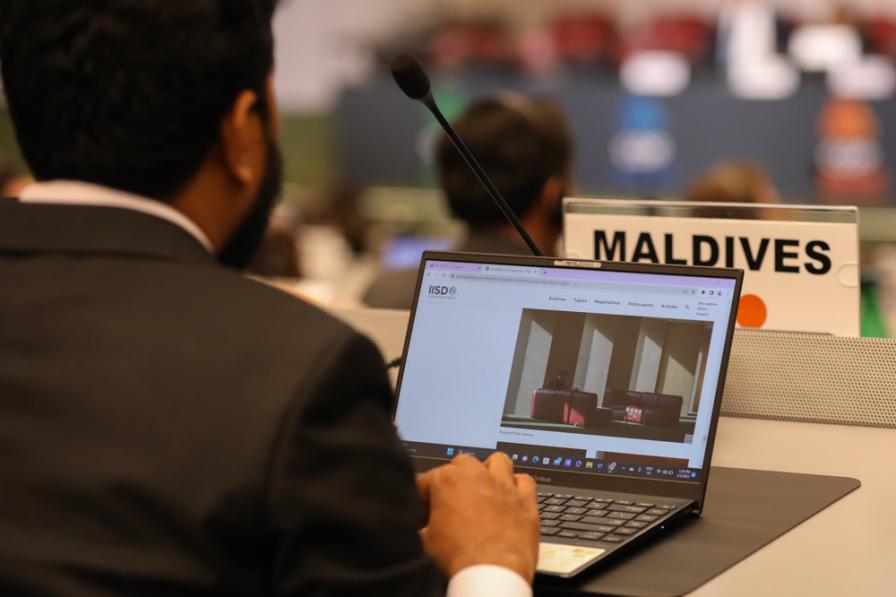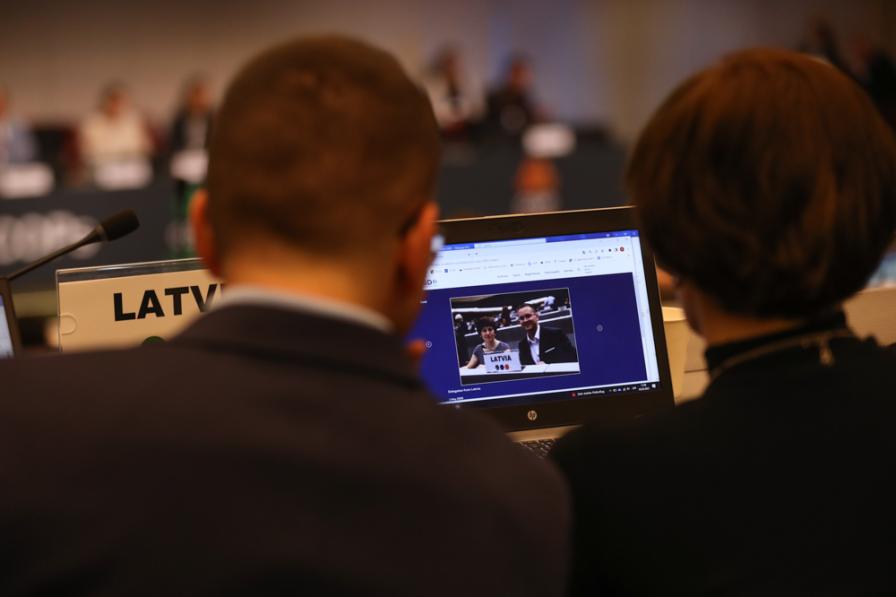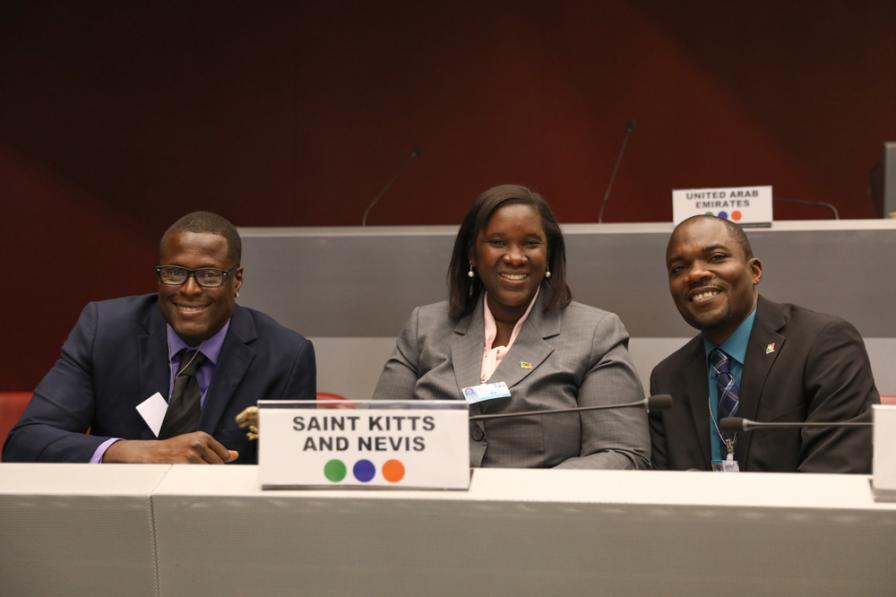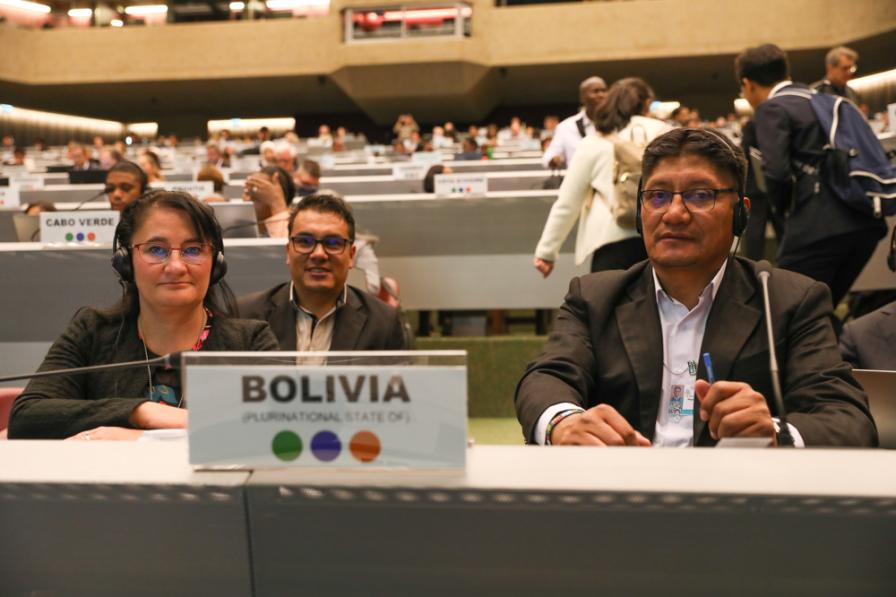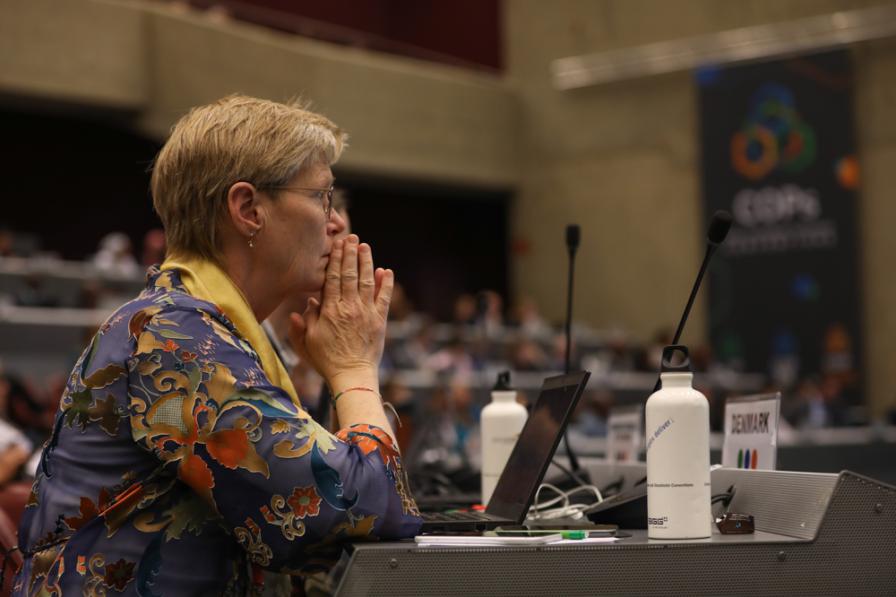The Basel, Rotterdam, and Stockholm (BRS) Conventions addressed a range of issues of interest across these chemicals and wastes conventions. These treaties are closely related, as are the general problems countries encounter in implementing and undertaking ambitious actions on chemicals and waste.
But despite these challenges, there is good news. Globally, persistent organic pollutant (POP) concentrations are declining. The effectiveness evaluation, supported by the global monitoring plan, found that the Stockholm Convention is working. Its regulatory controls have reduced POPs in humans and the environment.
Yet, some challenges remain. The BRS Conventions discussed technical assistance and financial resources to support developing countries to meet their obligations under the Conventions. These treaties regularly update their provisions, by adding new chemicals or wastes to their controls. After every COP, then, countries have new issues to address. For developing countries, this adds to their financial burdens. Additionally, they require support to continue to identify the presence of chemicals in their countries, in what products and volumes, and how to effectively manage the risks. Talks on these issues are expected to continue throughout the meeting.
Want to dig deeper? Read the full Earth Negotiations Bulletin daily report.
Compliance was an area where the differences among the conventions stood out. The Basel Convention has a long-standing compliance mechanism; the Rotterdam Convention’s mechanism was established in 2019. For the Stockholm Convention, the issue has been outstanding for 19 years. A range of countries noted the growing obligations under the Stockholm Convention, and that financial resources are necessary to help them comply. Others stated that a compliance committee could help in exactly those cases, by supporting countries in cases of potential non-compliance.
The Stockholm Convention continued to discuss listing Dechlorane Plus, a flame retardant, and UV-328, a UV filter used in plastics. Some countries reported the use of these chemicals in medical equipment, and called to allow continued production and use for these specific parts. This potential exemption for continued production and use may, they suggested, need to last longer than the Convention foresees to ensure the medical equipment can continue to be used to support people’s health and wellbeing. The typical length of such a specific exemption is five years, plus a potential additional five.
The Basel Convention addressed several technical guidelines. These included discussions on how to manage waste lead acid batteries and other waste batteries, including those containing lithium that are expected to be a growing waste management concern. Global demand for lithium-ion batteries is expected to increase elevenfold by 2030 as the world turns to electric vehicles and other clean energy technologies, creating future waste challenges.
Side Events
The BRS Conventions are part of a larger global effort to manage chemicals and wastes. Two side events highlighted the connections between the BRS Conventions and the ongoing negotiations for plastics, and for a new science policy panel on chemicals, wastes, and pollution prevention.
Other events considered how to improve the transmission, accessibility, and use of data in national implementation plans under the Stockholm Convention, and experiences in phasing PFAS out of fire-fighting foams.
All ENB photos are free to use with attribution. For the 2023 BRS COPs, please use: Photo by IISD/ENB | Kiara Worth.
To receive free coverage of global environmental events delivered to your inbox, subscribe to the ENB Update newsletter.

